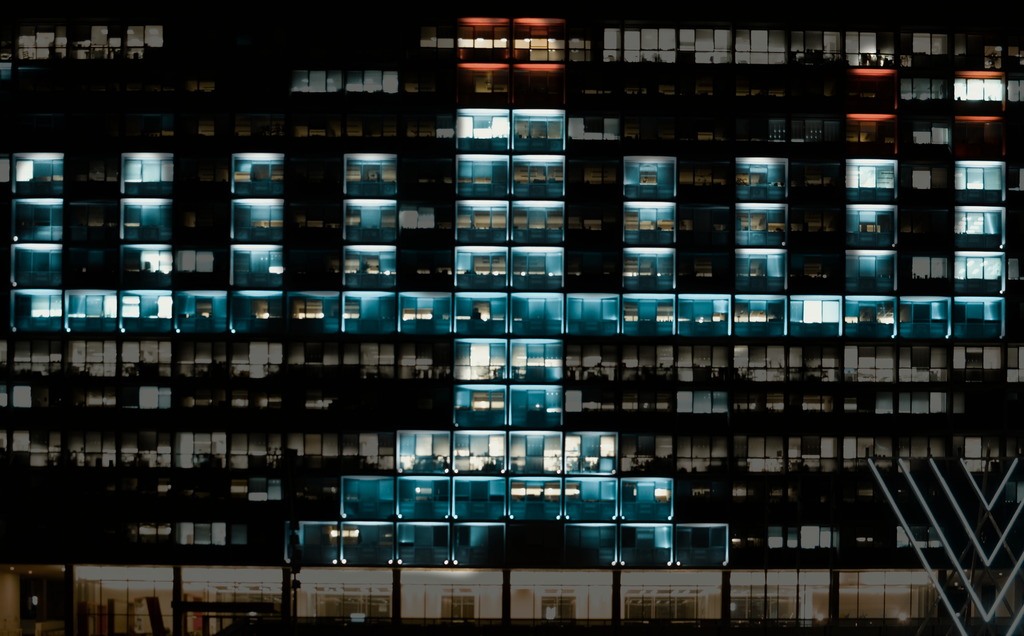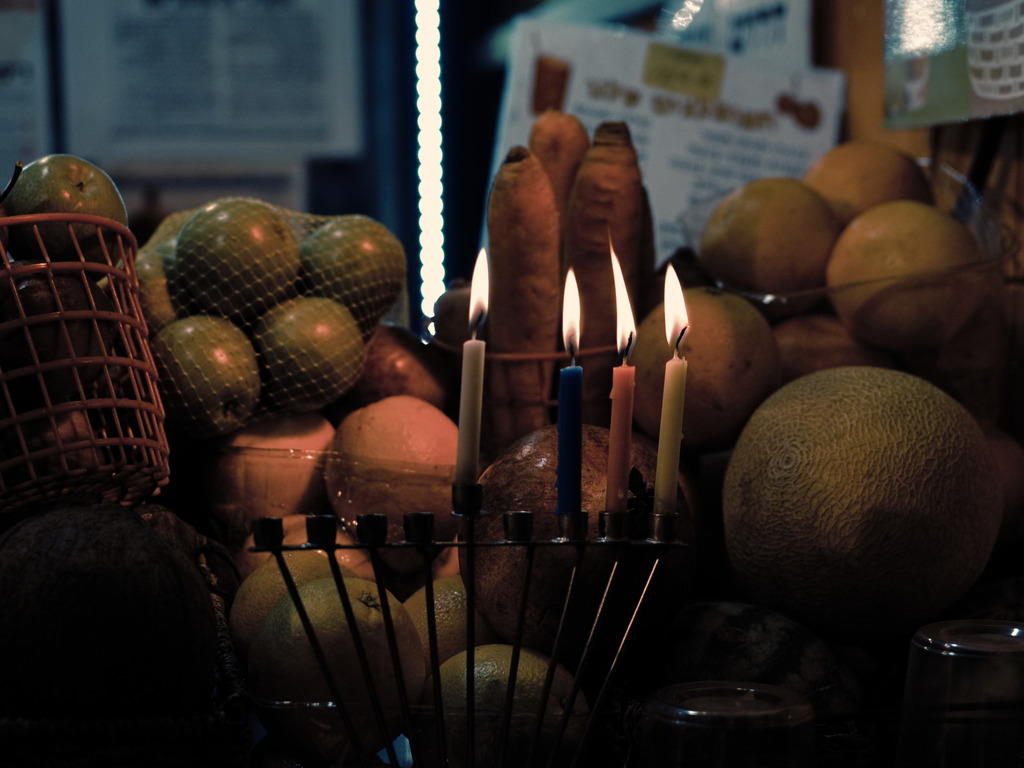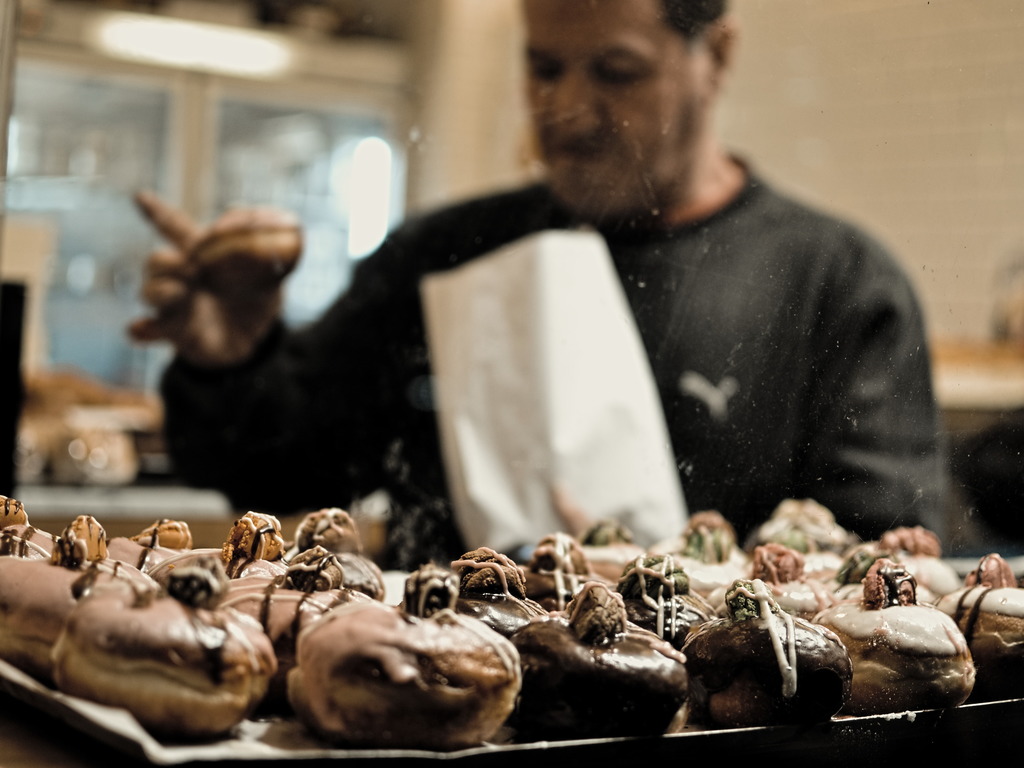 |
| Tel Aviv’s City Hall lights up for Hanukkah 2015 |
If you have grown up watching F.R.I.E.N.D.S you may believe that Hanukkah is the Jewish equivalent of Christmas. It is not. It is hardly Christmas, it is hardly a major Jewish festival. So there is no point trying to compare it with the most important Christian festival of all time.
I came to Israel with the same misconception that I am now trying to dispel. Last year I witnessed Hanukkah for the first time. It is a festival of lights, so Hanukkiahs (nine-branched candelabra for Hanukkah as opposed to the traditional seven-branched Menorah) are sold in grocery stores along with candles and Chabad representatives light massive Hanukkiahs at major social spaces in the city. That apart, you don’t get an inkling that a festival is being celebrated by the country.
Being mostly passive participant of Jewish festivals I have come to superficially understand Jewish festivals. My learning is as follows:
The holy days follow a general set of principles:
1. Significance of the festival: Someone attacked/enslaved the Jews; the Jews fought and emerged victorious/escaped the horrors
2. Rules: More rigorous than shabbath. The general principle is to mourn the event that is being remembered and therefore many pleasures or luxuries must be given up. All that in addition to the absence of public transportation. Lord, have mercy!
For example — for Passover or Pesach, wheat based food products are not to be consumed; on Yom Kippur even personal hygiene should be set aside as bathing is prohibited on this day
3. Feast: No matter what the misery the ancestors survived, a feast to commemorate the holy day is non-negotiable.
 |
| A Hanukkiah is lit up in a fruit juice stall on the third day of Hanukkah 2015 |
Considering the history of the religion and its followers, it is not a stretch to imagine that most Jewish festivals adhere to Principle 1. As does Hanukkah (Revolt of the Maccabees). Despite that, it is still a minor Jewish festival. I risk the chance of over simplifying but my simple reason is this: the buses are running, there are no major rules to follow, life goes on like any other day of the week. That says a lot about a Jewish holiday, to me.
Also, Hanukkah is not a Biblical festival. Its origins are not in The Book but in another book which is like an appendage to The Book.
This may seem like a trivial detail but families get into major Biblical arguments over this stuff. I was once part of one very enlightening discussion between two cousins about the ‘legitimacy’ of Hanukkah. The general happy holidays greeting in Hebrew – Chag Sameah – apparently should not be used in the context of Hanukkah. Because the Biblically more knowledgeable cousin says that since Hanukkah is not a Biblical festival it can’t be classified as a chag – festival of a Biblical nature. The liberal cousin argued that in modern society the status of chag has been diminished and so you can hear some people wishing each other chag sameah even for Hanukkah.
So, there you have it. Hanukkah is not anything like Christmas save for the proximity between the two festivals. Its origin story is quite mystical though, something about oil that was meant to last for one night ended up lasting for eight days. Therefore, lighting of one candle every day for eight days. Google will tell you all about that and the Maccabees (not the Israeli football team).
 |
| Sufganiyot! Attack! |
Finally, Hanukkah involves food, but most unhealthy in nature. Oil, as you now know, is key to Hanukkah. What better way of honouring oil than by deep frying things in it and then stuffing your face with that? This brings us to sufganiyot or jelly filled doughnuts which are central to any Hanukkah celebration. Other fried delicacies include, potato latakes, pancake variations, etc.
Time now for me to go gorge on some sufganiyot. Doesn’t sufganiyot just sound a million times better than doughnuts? I’ll leave you with that thought.